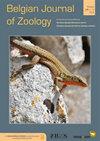Investigation of ancient DNA to enhance natural history museum collections: misidentification of smooth-coated otter (Lutrogale perspicillata) specimens across multiple museums
IF 1.1
4区 生物学
Q2 ZOOLOGY
引用次数: 9
Abstract
Historical and modern natural museum collections are storehouses of extraordinary value for scientific research in a wide range of fields. Recent advances in molecular biotechnology (e.g., next generation genomics) have increased the range of collection material employable for DNA-based analyses to unprecedented levels. Nevertheless, the value of museum specimens strictly depends on reliability of data associated with them. We report on investigations of ancient DNA from specimens of smooth-coated otter (Lutrogale perspicillata, Mustelidae), the largest otter species living in Asia, in US and European mammal collections. Mitochondrial DNA Cytochrome-b gene sequencing proved that the studied specimens were not the expected taxon. Indeed, they actually belonged to three different species, namely the Asian small-clawed (Aonyx cinereus), Eurasian (Lutra lutra) and African clawless (Aonyx capensis) otters. This represents the first record of mustelid misidentification from museum collections. Detection of errors can be extremely difficult when based only on collectors’ notes and data. Hence, we warn scientists involved in otter research about potential challenges when dealing with museum specimens. We recommend curators pursue a multidisciplinary approach, including DNA analyses, to accurately catalogue the resources under their management and uphold the value of biodiversity information.古DNA研究提高自然博物馆馆藏:多个博物馆对光滑水獭(Lutrogale perspicillata)标本的错误鉴定
历史和现代自然博物馆藏品是对广泛领域的科学研究具有非凡价值的宝库。分子生物技术(例如,下一代基因组学)的最新进展将可用于基于DNA的分析的收集材料的范围增加到了前所未有的水平。然而,博物馆标本的价值严格取决于相关数据的可靠性。我们报道了对美国和欧洲哺乳动物收藏中生活在亚洲的最大水獭物种——光滑水獭(鼬科)标本的古代DNA的调查。线粒体DNA细胞色素b基因测序证明,所研究的标本不是预期的分类单元。事实上,它们实际上属于三个不同的物种,即亚洲小爪水獭、欧亚水獭和非洲无爪水獭。这是博物馆藏品中首次出现mustelid误认的记录。如果仅基于收集器的笔记和数据,则错误检测可能极其困难。因此,我们警告参与水獭研究的科学家在处理博物馆标本时可能面临的挑战。我们建议策展人采用包括DNA分析在内的多学科方法,对其管理的资源进行准确编目,并维护生物多样性信息的价值。
本文章由计算机程序翻译,如有差异,请以英文原文为准。
求助全文
约1分钟内获得全文
求助全文
来源期刊

Belgian Journal of Zoology
生物-动物学
CiteScore
1.90
自引率
0.00%
发文量
10
审稿时长
>12 weeks
期刊介绍:
The Belgian Journal of Zoology is an open access journal publishing high-quality research papers in English that are original, of broad interest and hypothesis-driven. Manuscripts on all aspects of zoology are considered, including anatomy, behaviour, developmental biology, ecology, evolution, genetics, genomics and physiology. Manuscripts on veterinary topics are outside of the journal’s scope. The Belgian Journal of Zoology also welcomes reviews, especially from complex or poorly understood research fields in zoology. The Belgian Journal of Zoology does no longer publish purely taxonomic papers. Surveys and reports on novel or invasive animal species for Belgium are considered only if sufficient new biological or biogeographic information is included.
 求助内容:
求助内容: 应助结果提醒方式:
应助结果提醒方式:


